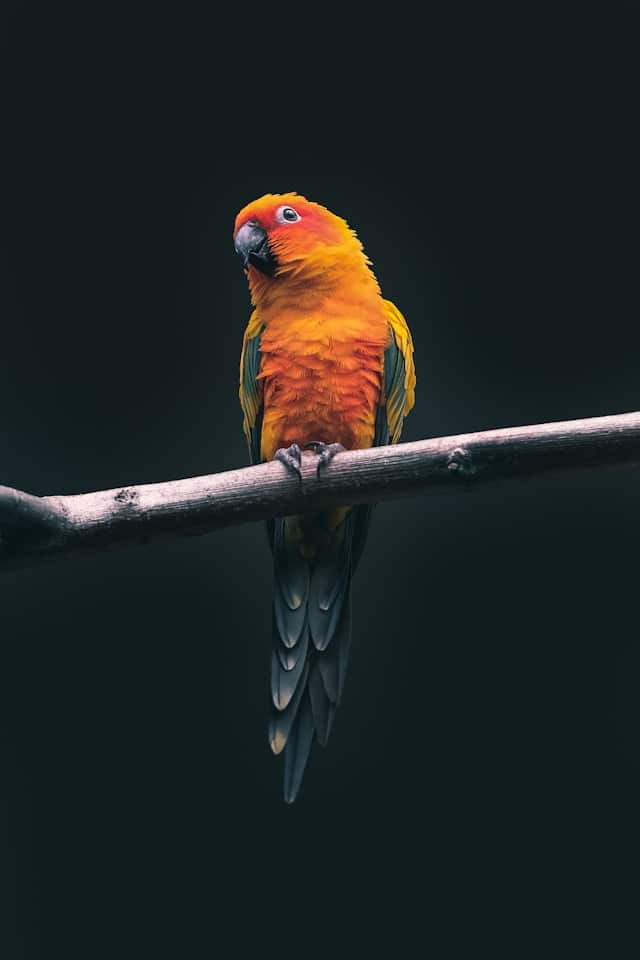How to Detect and Address Zinc Deficiency in Pet Parrots?

As parrot owners, you need to ensure the health and happiness of your avian companions. These exotic birds require special care and attention, especially when it comes to their diet. Just like humans, parrots need a balanced diet to stay healthy. One of the essential nutrients that your pet parrot needs is zinc. Misunderstandings about the levels of zinc required by birds can lead to serious health issues. In this article, we will explore the role of zinc in a parrot’s diet, how to detect if your feathered friend is zinc deficient, and the steps you can take to address this deficiency.
Understanding the Importance of Zinc in a Parrot’s Diet
Before we dive into the signs of zinc deficiency and how to address it, it’s crucial to understand why zinc is so important for your parrot’s health. Zinc is a trace mineral that plays a vital role in the metabolic system of birds. It is involved in enzyme production and protein synthesis, and it influences the behavior and feather condition of your parrot.
Avez-vous vu cela : How to Create a Calm Environment for a Dog with Seizures?
Without adequate zinc, your bird may experience a range of health problems. Zinc deficiency can cause a slow down in growth, poor feather condition, and even changes in your bird’s behavior. Therefore, it becomes pivotal that we keep a constant check on the zinc levels in their diet.
Detecting Zinc Deficiency in Your Pet Parrot
Detecting zinc deficiency in your pet parrot can be a bit tricky. Unlike vitamin deficiency, which often presents with visible signs, zinc deficiency symptoms may not become evident until your bird’s health has seriously deteriorated.
A lire également : How to Create a Calm Environment for a Dog with Seizures?
However, there are a few tell-tale signs that your parrot may be deficient in zinc. These include a decrease in appetite, weight loss, lethargy, poor feather condition, and changes in behavior such as increased aggression or depression. In more severe cases, zinc deficiency can result in a slow growth rate and even death.
It’s also worth noting that parrots can have too much zinc in their diet, which can be just as harmful. Excessive zinc intake can lead to toxicity, which manifests as vomiting, diarrhea, and even seizures. Therefore, maintaining a balanced zinc level is crucial.
Balancing Zinc Levels in Your Parrot’s Diet
So, how can you ensure that your bird is getting the right amount of zinc? Parrots, like most birds, primarily acquire zinc through their diet. Ensuring that your parrot has a balanced diet is the first step in managing its zinc levels.
Offer your parrot a variety of foods, including fruits, vegetables, and high-quality pellets. Fruits and vegetables like apples, oranges, spinach, pumpkin, and green beans are excellent sources of zinc. Avoid feeding your bird a strictly seed-based diet as seeds are low in zinc and other essential nutrients.
Supplements can also be used to balance zinc levels, but always consult a veterinarian before introducing any supplement to your bird’s diet. Remember, it’s easier to prevent zinc deficiency than it is to treat it.
Ensuring a Zinc-Safe Environment
Finally, besides diet, you need to check your parrot’s environment. The most common cause of zinc poisoning in birds is their cage.
Zinc is often found in the wire used in bird cages and in some toys. Over time, your parrot can ingest small amounts of zinc by chewing on the cage bars or toys. To ensure a zinc-safe environment, opt for stainless steel cages which are free of zinc.
In addition, check any toys and accessories in your bird’s cage. Many commercial bird toys contain metal parts that can be coated with zinc. If your bird likes to chew on its toys, it’s best to stick with toys made from safe, natural materials like wood and rope.
To summarize, monitoring your pet parrot’s diet and environment for zinc levels is essential in maintaining their health. Remember, your feathered friend relies on you for their well-being, so take the time to understand their dietary needs and ensure they live a long, happy life.
In case you suspect your bird has a zinc deficiency or zinc poisoning, consult an avian veterinarian immediately. Only a vet can accurately diagnose and treat these conditions. Plus, they can provide guidelines on the proper diet and care for your specific bird species. Make your pet parrot’s health a priority, and they’ll reward you with their lively personality and beautiful feathers.
The Role of Zinc in Feather Picking and Skin Health
While feather picking and skin problems in pet birds could be attributed to various factors, zinc deficiency may play a significant role. Zinc promotes skin health and feather growth, making it a key nutrient in preventing skin and feather disorders in pet birds.
Feather picking in parrots is often a symptom of discomfort. If your bird is constantly preening or plucking its feathers, this could be a sign of irritation caused by an imbalance in their diet. Zinc, being integral to the maintenance of healthy skin and feathers, could be the missing element.
When the required amount of zinc is not provided, it may lead to skin irritations and result in feather plucking. Parrots with a zinc deficiency can develop inflamed skin, which is uncomfortable and often leads to feather picking. If left unchecked, this can become a problematic behavior, causing distress to both the bird and its owner.
However, it’s essential to understand that feather picking can also be a symptom of other health issues or stressors. Bird health is complex, and many factors contribute to skin and feather conditions. Therefore, it is important to consult with an avian veterinarian if your bird starts showing signs of feather picking.
The Risk of Zinc Toxicosis from Cages and Toys
While diet is a significant factor in maintaining the correct zinc levels, it’s essential not to overlook another common source of zinc exposure in pet birds – their environment. Galvanized wire used in bird cages and zinc-coated toys can pose a risk of zinc toxicosis, a form of heavy metal poisoning.
Zinc can leach from the galvanized wire of bird cages, especially in moist conditions. When birds chew on their cages, which is a common behavior, especially among larger birds like grey parrots, they can ingest this zinc. Over time, this can lead to metal toxicity.
Toys, too, can be a source of zinc. Many toys designed for birds have metal parts that are often coated with zinc. Birds that enjoy chewing on their toys could ingest harmful amounts of zinc. It’s best to choose toys made from natural materials like wood or rope to avoid this risk.
When choosing a bird cage, opt for stainless steel cages. Unlike cages made of galvanized wire, stainless steel cages do not contain zinc and are safer for birds. If you’re unsure about the material of your bird’s cage, a powder coating can act as a protective barrier, preventing your bird from ingesting any potential zinc.
Conclusion: Taking a Holistic Approach to Bird Care
In conclusion, taking care of your pet parrot’s health requires vigilance and a deep understanding of their specific needs. As a bird owner, it’s your responsibility to ensure they get a balanced diet rich in essential nutrients like zinc.
Remember, both zinc deficiency and zinc toxicosis can lead to serious health problems. Monitoring your bird’s behavior and physical health, along with their diet and environment, can help in early detection and prevention. Feather picking, changes in behavior, skin and feather conditions, and weight loss are all signs that your parrot’s health might be at risk.
Lastly, always consult an avian veterinarian if you suspect a health issue, whether related to diet or otherwise. A vet can accurately diagnose and provide specific guidelines on the proper care for your bird species. This includes advice on calcium phosphorus balance, prevention of metal toxicity, and help with any behavioral issues like feather plucking.
In essence, bird care requires a holistic approach that encompasses diet, environment, and regular health checks. By being attentive to your bird’s needs, you can ensure they live a happy, healthy life full of vibrant feathers and lively personality.
